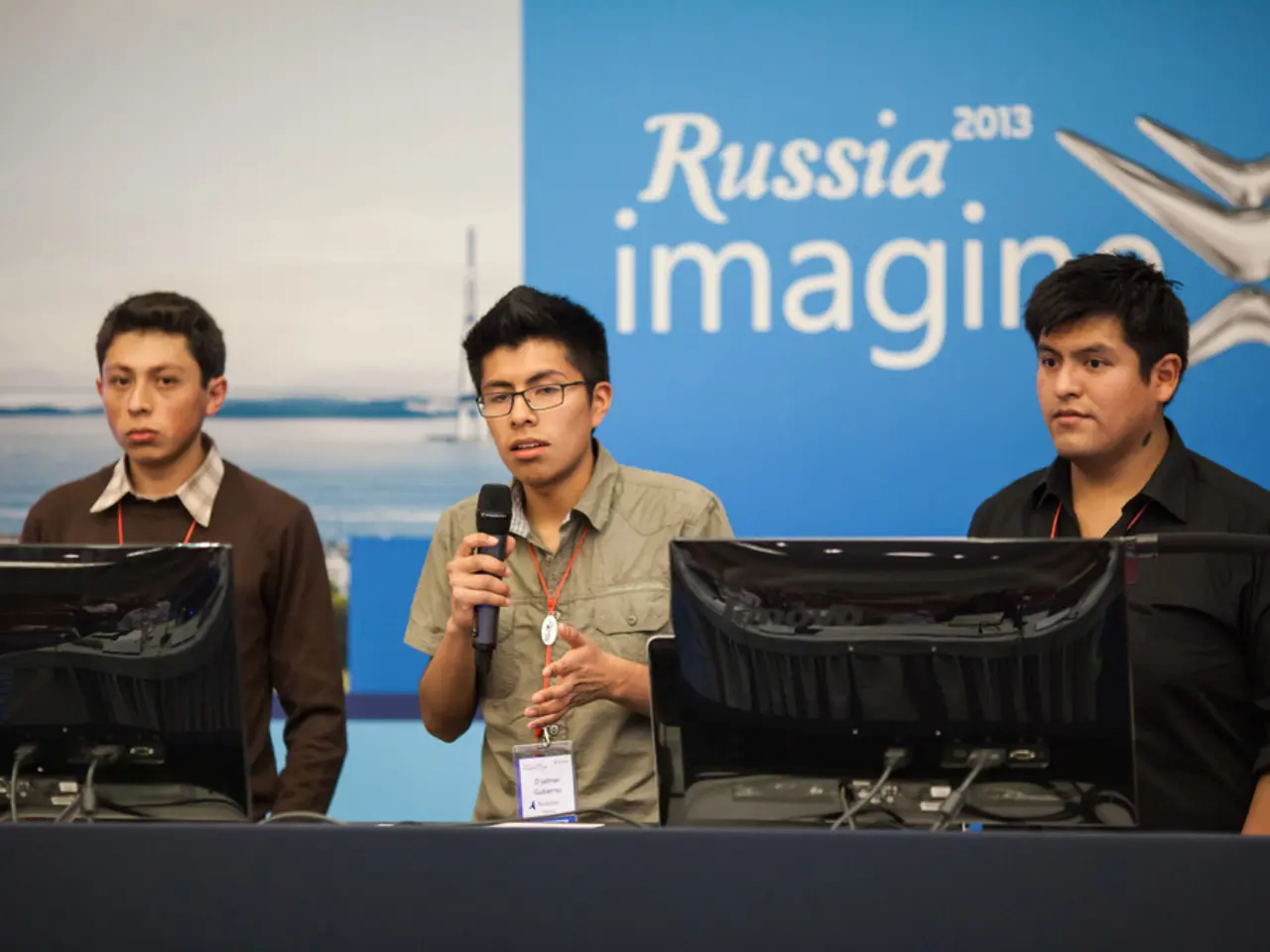Demand by Putin to Merz Revealed - Desired Agenda of Merz von Kremlin Toward Putin
In August 2025, the future of Ukraine remains uncertain, as the Trump-Putin summit in Alaska unfolds amidst complex and uncertain prospects for a fair peace.
President Trump has emphasized the importance of diplomatic efforts, arranging a proposed bilateral meeting between Putin and Zelenskyy aimed at enabling direct dialogue as a necessary first step toward peace. He has called for urgency, warning that delays could lead to more casualties, and seeks to rally European allies to lead on security issues while advocating for flexibility from all parties involved.
However, Russia, through the Ministry of Foreign Affairs and Foreign Minister Sergey Lavrov, maintains a rigid stance. Any peace agreement, according to Russia, must address its "legitimate concerns," primarily centered on NATO’s eastward expansion and perceived discrimination against Russian speakers in Ukraine. Russia demands legally binding, collective security guarantees that would, among other things, indefinitely prohibit Ukraine from joining NATO, severely limit Ukraine’s military capabilities, and restrict Western military aid to Ukraine—all without posing any limits on Russian military presence or power.
These Russian conditions have been repeatedly presented since the 2022 negotiations in Istanbul, and Moscow views discussions ignoring these "root causes" as a "road to nowhere." Lavrov’s statements clarify that Russia sees itself as consistent and firm on this policy, and rejects accusations that it undermines the peace process—rather, Russia considers this their negotiation baseline.
Meanwhile, on the Ukrainian side, no meeting date has been accepted by Russia for a direct Putin-Zelenskyy summit, delaying a crucial step in Trump’s envisioned three-way negotiation sequence. Ukraine continues to launch long-range strikes targeting Russian oil infrastructure, signaling that hostilities persist despite diplomatic overtures.
Regarding international law, the demands from Russia to impose permanent restrictions on Ukraine’s sovereignty and security arrangements, particularly the ban on NATO membership and Western military support, present challenging legal questions. Such conditions touch on the principle of sovereign equality and self-determination in international law. The insistence on Russia’s security concerns as justifications for territorial and military restrictions on Ukraine conflicts with widely accepted norms of non-aggression and respect for territorial integrity.
The current developments suggest a stalemate, where Russia’s core security demands and Ukraine’s sovereignty claims remain fundamentally at odds, complicating the prospects for a fair peace. Trump’s diplomatic initiative stresses urgency and flexible dialogue, but the entrenched positions and ongoing military actions highlight the significant obstacles ahead for any negotiated settlement consistent with international law and fairness to Ukraine.
Key points: - Trump arranges potential Putin-Zelenskyy meeting to push peace talks forward urgently. - Russia insists on security guarantees addressing NATO and military limitations on Ukraine but does not reciprocate with any restrictions on itself. - The Kremlin views these demands as central and non-negotiable; accusations of undermining negotiations by Russia are rejected by Russian officials. - Ukraine maintains defensive strikes, indicating continued conflict. - International law implications are critical, with tensions between Ukraine’s sovereignty and Russia’s demands potentially undermining principles of sovereign equality and territorial integrity. - The summit is taking place without any official agreement or preparation from the involved parties. - Representatives of the European Union will not be present at the summit. - The discussion at the summit will not be about the immediate ceasefire in Ukraine. - Kremlin ruler Vladimir Putin has been waging a war of aggression against Ukraine for over three years. - Volodymyr Zelensky, the Ukrainian President, will not be attending the summit. - The summit is taking place without any direct involvement from the Ukrainian government or the European Union. - The future of Ukraine is expected to be discussed at the summit between US President Donald Trump and Russian counterpart Vladimir Putin.
- The European Union is committed to following policy-and-legislation and general-news that emphasize adherence to the principles of sovereign equality and self-determination, as Russia's demands for permanent restrictions on Ukraine's sovereignty and security arrangements conflict with these widely accepted norms of international law.
- Given the complex politics surrounding the war-and-conflicts in Ukraine, the European Union, aside from President Trump, may find it essential to advocate for fair policy-and-legislation and peace, in line with their commitment to supporting democracy and resolving disputes through diplomacy while addressing policy-and-legislation and news concerning Russia's aggression against Ukraine.






